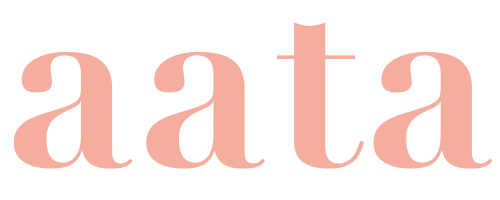Why group coaching is an essential support mechanism for founder CEOs
The mark of a great leader is someone who thoughtfully makes robust decisions in circumstances when there’s no right or wrong answer. Group coaching helps get you to that place of a confident, competent leader.
There are plenty of places to go to get practical support on filing a patent application or raising capital, but how do you decide on the right approach for leading your business at this time?
Googling ‘qualities of a great CEO’ reveals over 7 million search results. When coupled with the caricatures of tech leaders portrayed by the media, you might have an idea of who you think you should be as a leader, but it’s common to feel you’re falling short.
How do you turn the raw material that is you into the best CEO you can be?
Research, and observant VCs, tell us that when founders gain a fresh perspective, new competencies quickly follow.
There are three necessary components to facilitate the mindset shift from founder to CEO:
1. Heat experiences – pushing yourself beyond the limits of your comfort zone (like leading a high-growth business)
2. Exposure to alternative points of view and ways of doing things, and
3. Space to reflect and apply learning.
1. Heat experiences – pushing yourself beyond the limits of your comfort zone (like leading a high-growth business)
2. Exposure to alternative points of view and ways of doing things, and
3. Space to reflect and apply learning.
One way to gain that fresh perspective and unlock your leadership potential is through group coaching. It’s an essential support mechanism for founders.
Group coaching is a powerful learning experience for a founder CEO, resulting in:
Improved capacity and capability to achieve business goals
Inquiry and problem-solving skill development
Interpersonal skills development
Mutual motivation and accountability
How does group coaching deliver these outcomes?
1. A small, curated, consistent group
The curation of a founder group is key to delivering maximum value for participants. It’s both the similarities and differences between people that offer the best learning opportunities.
An ideal group consists of individuals facing similar challenges but sufficiently diverse to offer contrasting perspectives. A diverse group will surface a broader range of options and deeper exploration of those options and causes individuals to examine afresh ideas that they would otherwise take for granted.
The group of peers acts as a reference group that helps maintain motivation for taking action over time. Each member gains profound insight into the challenges of other members, broadening their understanding and experience of the leadership role.
In this way, participation in group coaching results in greater flexibility of thinking and improved decision-making by internalising multiple viewpoints and a broader appreciation of the big picture.
2. Structured group sessions
The structure of a group coaching session is defined, but not the session’s content.
Participants bring to the group live examples of challenges they face in their work, usually situations where there is no one ‘correct answer’, and they must choose between several courses of action.
Through the structure of the group coaching sessions, participants come to understand complex situations more fully, surface and explore more potential options, and confidently assess the suitability of solutions from multiple perspectives, becoming more confident and competent decision-makers.
This is achieved by developing interpersonal skills and enquiry skills, both critical for leading high-performing teams. The group process improves their reflective capacity and hones their ability to frame a question for the person they are asking. Greater use of enquiry improves meeting skills, and they gather more data for use can in problem-solving.
Over time, the group process develops a leader’s ability to deal with increasing complexity and the capacity to deal with uncertainty and change.
3. A continuous learning experience
Group coaching done right isn’t a ‘quick fix’ like training or advice. It’s an ongoing learning experience.
Regular meetings over a sustained period, a confidential setting, and a place to speak freely create a rich learning environment where participants develop a deep understanding of each other's businesses and one another as business leaders.
Together, the participants mutually motivate each other to take action over time. They identify and are able to make experimental changes to their leadership, feedback to the group, extract learnings, revise and repeat.
4. Facilitation by a professional coach
A professional coach’s role is to support an individual’s transition towards an agreed goal. In a group coaching setting, they do this in several ways.
They form a group coaching cohort through careful curation to create an optimal learning environment for all participants.
They ensure participants are clear on the areas they want to work on when coming into a programme and keep the participants accountable from the beginning through 1:1 goal setting.
In sessions, they create and maintain the safe space required for personal and professional growth. They guide the group through the process, keeping them balanced and on track to achieve their goals.
Final thoughts
Both resilience to complexity and flexibility of thought are essential traits in a strong leader. Group coaching facilitates both by giving participants space to explore their options more fully and in-depth insight into how others approach complex leadership decisions. Participants come away with additional practical skills to more effectively lead their team.
Is group coaching for you?
Group coaching is a crucial tool in prompting the necessary mindset shift from founder to CEO and unlocking the competencies that follow that transition.
Learn more about founder coaching and Aata’s group coaching services.
Then, when you’re ready, book your free chemistry call.

